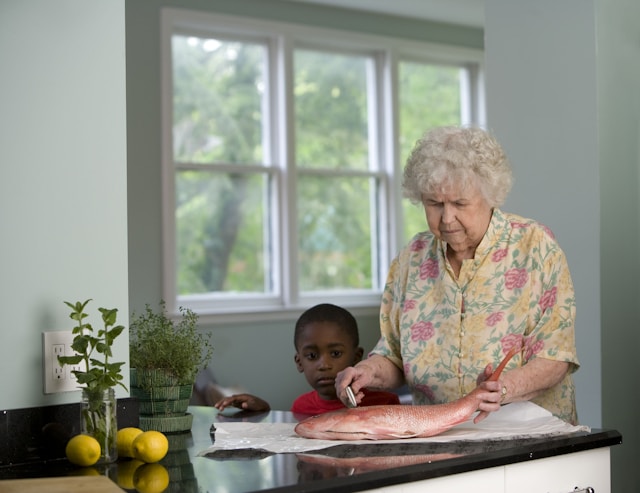Taking care of an aging loved one is a special gift. One of the most troubling factors an individual can encounter when caring for an older adult is memory loss. There is a standard amount of forgetfulness that’s normal for an aging individual. However, there is a point where it becomes concerning.
Whether you’re preparing for all possibilities with your loved one or experiencing the warning signs of memory loss, it’s vital to know what’s happening. Keep reading to learn more about what amount of memory loss is typical, signs that indicate significant memory loss, when it’s an emergency, and more.
What Amount of Memory Loss is Normal?
Although it can be frustrating, a certain amount of memory loss and cognitive decline is normal with age. Most older adults will have a certain amount of forgetfulness, misplacing items, and losing track of time as they add more years to their lives. If it’s annoying but doesn’t impact quality of life, it isn’t typically a sign of something more concerning.
Normal cognitive decline with age can create symptoms like:
- Being easily distracted
- Short-term memory issues
- Struggling to concentrate
- Feeling overwhelmed
Often, friends and family will notice the significant impact. These signs can point to a bigger issue as they continue. However, if they don’t grow into a problem that impacts the overall quality of life of the person experiencing it, you have nothing to worry about.

What Are Signs of Concerning Memory Loss?
Most people have had a problem with memory loss at some point, whether that’s forgetting your keys in the other room or forgetting you have a meeting with someone. However, there’s a point when it becomes concerning rather than an accidental trouble spot in your day.
More concerning signs of memory loss include the following:
- Issues remembering recent talks
- Misplacing frequently used items
- Missing appointments
- Forgetting to handle usual responsibilities
- Asking the same question over and over again
These could be signs of deeper trouble.
These troubles could accompany the following issues:
- Trouble picking the right word
- Issues recognizing things like faces
- Faults with impulse control
- Trouble doing otherwise normal things
These, combined with the other issues, indicate something significant is going on. If you notice any combination of the above issues, we advise reaching out to a healthcare provider as soon as possible. They will help your loved one take the next steps to address their growing trouble with forgetfulness.
Related: 9 Mental Exercises to Keep Your Mind Sharp
What Issues Cause Memory Loss?
There is much left to be studied in memory loss and what causes it. Sudden and progressive memory loss have different causes, some related to medical conditions and others to environmental concerns.
Here are some of the risks that could lead to sudden memory loss, also known as amnesia:
- Alcohol-related blackouts
- Brain bleeds
- Environmental toxins
- Cancer treatment
- Traumatic brain injury
- Mood disorders
- Migraine
- Seizures
- Infections
- Seeing traumatic events
These can lead to a sudden, unexpected loss of memory.
Here are some of the risks that could lead to progressive memory loss:
- Alzheimer’s disease
- Neurodegenerative disorders like Huntington’s disease
- Brain vascular disorders
- Brain tumors
- Multiple sclerosis
These can lead to memory failure over an extended period.
Ultimately, there are many factors out of your control when caring for your loved one. Lead them in a healthy lifestyle and be ready to seek help if something goes south with their memory.
Related: Alzheimer’s vs. Dementia: Is There a Difference?
When is Memory Loss An Emergency?
Most of the time, struggling with memory issues isn’t a cause for an emergency. However, some signs to watch indicate you need more help than simple rest at home. As a caregiver, keep your eyes peeled for these problems to see when memory loss is more concerning.
Memory loss is an emergency if you notice some of these signs:
- Trouble following conversations
- Cutting off others when they walk with something unrelated
- Forgetting regular grooming
- Serious trouble making choices
- Forgetting to take medication
These can significantly lower the quality of life and even cause harm. If memory loss is to the point where your loved one isn’t acting in the way they usually would, it’s time to take them to see a doctor and explain the situation. They will assist with the best next steps.

Are There Treatments for Memory Loss?
There are currently no ways to treat memory loss, which leaves a gap in scientific accomplishment thus far. If there is an underlying cause, treat that and see if it leads to a better quality of life for the individual in your care.
There are some new treatment options available if the underlying cause of memory loss is a degenerative brain disease. However, the circumstances can make the medication and dosage vary dramatically. Speak to your healthcare provider to determine the ideal steps for the specific memory loss.
You May Also Enjoy: How to Approach the Topic of Caregiving With Aging Parents


















